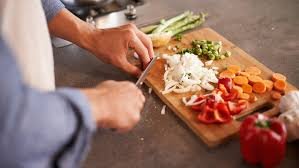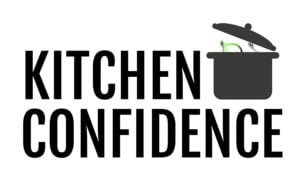
8 Things You Will Learn In Culinary School
Are you thinking of attending Culinary School?
If so, you’re in for a treat.
The culinary industry and the career opportunities in the culinary industry are much more than what we perceive.
So, culinary schools is the right choice for you if you’re also looking to become a chef in the culinary industry or just want to learn more about cooking.
So, Let’s go; we will discuss it in detail below.
What is a Culinary School ?
Culinary school teaches you the basics of cooking, but it also provides you with a wealth of knowledge about food and its history. You’ll learn about different cuisines from around the world and gain experience in the kitchen.
Culinary school is a great way to learn the skills and knowledge necessary to pursue a career in the culinary arts. Many different types of program are available.
Here is a brief overview of what you can expect to find at a culinary school.
- Culinary schools offer both short-term & long-term programs.
- The shorter programs tend to focus more on the technical aspects of cooking.
- The longer programs also include liberal arts courses and other subjects designed to give students a well-rounded education.
- Some Culinary schools provide industrial training after completing the program.
- With the proper education and training, you can pursue various careers in the culinary arts, including chef, restaurateur, caterer, or food writer.
What you will learn in Culinary School ?
Anyone considering culinary art or hospitality career should absolutely consider attending a culinary school. Here are just a few of the things you can expect to learn while enrolled:
- Knife skills: One of the most important things you’ll learn in culinary school is how to use and care for your knives properly. You’ll also discover various chopping techniques that will come in handy in the kitchen. Having proper knife skills will make your time in the kitchen much more efficient and enjoyable. Here are a few tips to help you learn knife skills in culinary school.
- Practice makes perfect. The more you use your knife, the sharper it will become and the easier it will be to use.
- Always use a cutting board. This will help protect your countertops and prevent your knife from becoming dull.
- Invest in a good knife. A quality knife will make a world of difference when it comes to cutting food.
- Keep your knife clean. A clean knife is a sharp knife.
- Be careful. Knives are very sharp and can be dangerous if not used properly.
- Always use whetstone or electric sharpener to sharp the knife blade.
- Carefully handover the knife to another person. For instance: Setting the knife down, or securing the blade inside the handle, or grasp the knife from the spine of the blade between your index finger and thumb.

- Food safety: It’s important to know how to handle and prepare food safely to avoid making your diners sick. You’ll learn all about food safety in culinary school. For this, you need to pay attention to a few key things:
-
- Make sure you’re working with clean, fresh ingredients. That means washing vegetables and meat thoroughly before cooking them.
- Use disinfectant to clean the floors, cupboards, ceiling counter, etc. for the kitchen area.
- Cook food to the proper temperature. That means using a food thermometer to check that meat and poultry are cooked through and that seafood is cooked to the correct temperature.
- Avoid cross-contamination. That means keeping raw meat and poultry separate from other food and washing your hands thoroughly after handling them.
- Serve food immediately. It means food that’s been sitting out for more than two hours needs to be thrown away.
- Clean up thoroughly. Wash all surfaces and utensils that have come into contact with food and sanitise them if necessary.

- Learn to read recipes: Another thing you will learn in culinary school is how to read recipes. This may seem like a simple task, but it’s essential to know how to read recipes to cook them properly. Here are a few tips on how to read recipes:
- First, look at the ingredient list and ensure you have all the necessary ingredients. This may seem obvious, but it’s important to double-check before you start cooking.
- Next, look at the instructions and see if there are any steps you’re unfamiliar with. If there are, make sure to look up how to do them before you start cooking.
- Finally, once you start cooking, make sure to follow the recipe in the letter. This means measuring out ingredients exactly and cooking for the specified amount of time.

- Ingredient knowledge: You’ll learn about the different types of ingredients used in cooking and baking, as well as how to select the best quality ingredients. There are many kinds of ingredients that you can learn about, and each has its own unique flavour and use. Learning about different ingredients can help you create unique and delicious dishes that your friends and family will love.

- Menu planning: You’ll learn how to create delicious and balanced menus that will please your diners. This skill is critical for any chef, as it involves creating a balance of flavours, textures, and colours in each dish.
There are a few basic steps to menu planning:
- Choose a theme or concept for your menu.
- Select dishes that will complement each other.
- Balance the flavours, textures, and colours of each dish.
- Make sure each dish is seasonally appropriate.
- Plan for any dietary restrictions.
- Price each dish accordingly.
- Create a timeline for each dish.
- Test each dish before serving.

- Kitchen Management: Culinary school is also great for learning about kitchen management. Culinary school can teach you a lot about running a kitchen, from food safety, menu planning and execution, and food cost to waste control. You’ll also learn about leadership and team management, which can be invaluable skills in any kitchen.

- Creativity: Culinary school can teach you a lot more than just how to cook. It can also be a great place to learn creativity. Here are a few ways to do that:
- Take a class in a creative cooking style:– There are many different cooking styles out there, and each one requires a different approach to creativity. By taking a class in a manner that interests you, you can learn new techniques and ways of thinking about food.
- Be open to new ideas:– In culinary school, you will be exposed to new ideas and ways of doing things. Don’t be afraid to try them out and see what works for you.
- Practice, practice, practice:– The more you practice, the better you will use your creativity in the kitchen. Try out new recipes, experiment with different ingredients, and see what you can come up with.
- Talk to other chefs: – One of the best ways to learn about creativity in the kitchen is to talk to other chefs. Ask them how they approach creativity, what their favourite techniques are, and what their advice would be for someone just starting out.
- Read, watch, and learn: –There are many resources out there on creativity in cooking. Read books, watch cooking shows, and learn from those who are already experts in the field.

- Confidence in the kitchen: One of the best ways to learn confidence in culinary school is to participate in a cooking competition. This will not only give you a chance to show off your skills but also help you build confidence in your abilities. Additionally, try to get involved in as many activities as possible and take on leadership roles when possible. These experiences will help you learn to trust your instincts and give you the confidence you need to succeed in the culinary world.
 Do you have an Interest to join a Culinary School?
Do you have an Interest to join a Culinary School?
The points mentioned above are some of the many things you will learn in culinary school. The hospitality industry is growing at a rocketed speed, and so is the number of culinary school or hotel management institute. It can say that the future of the food and beverage industry in India is very bright and pleasant. Therefore you must pursue a certified course from a recognized hotel management institute or culinary school to learn professional skills.
Best Culinary School in India: –
Do you know the best institute in India that provides this certified course at a reasonable price? The answer is NFCI- hotel management and a culinary institute.NFCI is India’s leading hotel management institute, where an excellent curriculum is provided to generate employment.
To date, 22000+ students have studied here and have successfully established themselves in the hospitality industry of India and abroad. Yes, there is a great scope in abroad after completing a certified course from culinary school.
Yes, it’s true you can go to abroad after completing certified course from reputed institution like NFCI and this website have detailed information about the same. So, if you also want to be a part of the hospitality industry, NFCI will be the right choice for you.





